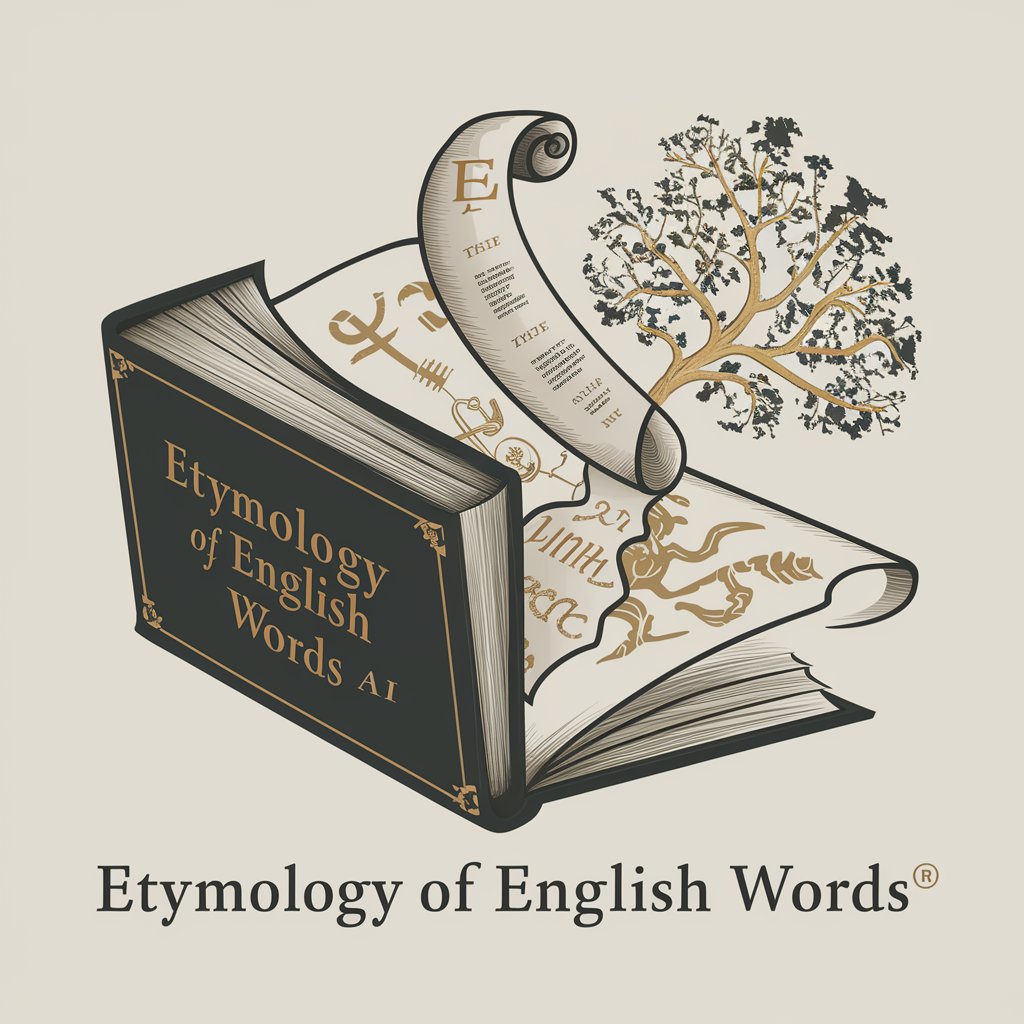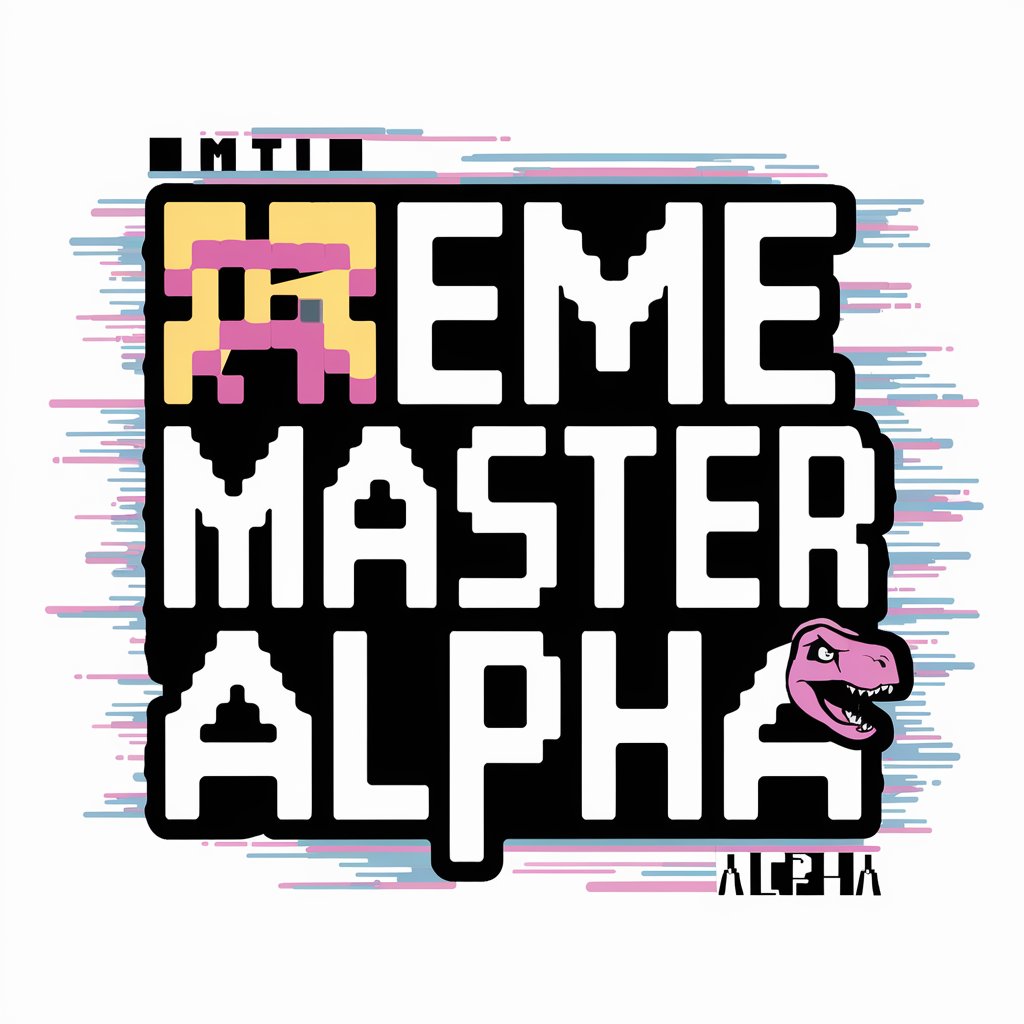Etymology of English Words - In-Depth Word Origins

Hello! Ready to explore the origins of English words?
Unlock the history behind every word.
Explain the etymology of the word 'philosophy'.
Where does the word 'democracy' come from?
Can you tell me the history behind the word 'quarantine'?
What is the origin of the word 'galaxy'?
Get Embed Code
Introduction to Etymology of English Words
Etymology of English Words is a specialized service designed to uncover and explain the origins and historical development of English words. Through the analysis of linguistic evolution, historical contexts, and the migration of words across cultures and languages, this service offers insights into how words have come to have their current meanings and forms. For example, exploring the etymology of the word 'star' reveals its roots in the Old English 'steorra', derived from Proto-Germanic '*sternan', which traces back further to Proto-Indo-European '*h₂stḗr', meaning 'star'. This illustrates the deep historical layers and cross-linguistic connections that shape our language. Powered by ChatGPT-4o。

Main Functions of Etymology of English Words
Historical Origin Analysis
Example
Discovering the origin of 'nightmare' which traces back to 'night' and 'mare', an Old English term for a demon that was believed to suffocate sleepers. The evolution reflects changes in cultural beliefs and language.
Scenario
Used by historians or cultural researchers examining how linguistic shifts mirror societal changes.
Cross-Linguistic Connections
Example
Exploring how the French word 'garçon' (meaning boy) is related to the English word 'garrison', indicating a place where soldiers are stationed. This shows the influence of Norman French on English post-1066.
Scenario
Beneficial for linguists or language students interested in understanding the impact of language contact and borrowing.
Word Evolution and Meaning Change
Example
Analyzing how 'awful' originally meant 'inspiring wonder' and has evolved to mean 'very bad'. This highlights semantic shifts over time.
Scenario
Useful for educators and students analyzing how language evolves and how historical contexts influence word meanings.
Ideal Users of Etymology of English Words Services
Educators and Students
This group benefits from understanding the etymology of words for educational purposes, enhancing vocabulary learning, and developing a deeper appreciation for the history and complexity of the English language.
Writers and Content Creators
They can use etymological insights to enrich their writing, choosing words with historical depths or nuances that add layers of meaning to their work.
Linguists and Language Enthusiasts
These users are interested in the systematic study of language and its historical aspects. They benefit from detailed analyses of word origins, linguistic evolution, and the influence of various languages on English.
Historians and Cultural Researchers
For those exploring the intersection of language, history, and culture, understanding the etymology of words can reveal insights into the beliefs, values, and practices of past societies.

How to Use Etymology of English Words
Start Your Journey
Begin by visiting yeschat.ai to access a free trial of the Etymology of English Words tool without the need for login or a ChatGPT Plus subscription.
Select a Word
Choose an English word you are curious about. It can be any word whose origins, history, or evolution you want to explore.
Query Submission
Input your selected word into the tool. Ensure correct spelling to receive the most accurate etymology analysis.
Review Results
Read through the detailed etymological breakdown provided. This includes the word's origin, historical context, and how its usage has evolved over time.
Further Exploration
Utilize the tool's additional resources for deeper understanding. This may include links to historical texts, examples of the word in literature, or related words.
Try other advanced and practical GPTs
SmugMug Sales History Analysis Tool (Detailed)
AI-driven Insights into Your Sales

Golf Weather+
Perfect your game with AI-powered weather insights.

🖥️ C# .NET Azure Wizard
Elevate Your C# and Azure Projects with AI

💻 Data Structures in C
AI-powered C data structure assistance

Discover
Empowering your research with AI.

Gaming Guru
Empowering gamers with AI-driven insights

HR Strategy Genius
Empowering HR with AI-Driven Strategies

Meme Generator
Unleash Creativity with AI-Powered Memes

Joke Assist AI
Crafting Laughter with AI

Yo' Momma GPT
Reviving Wit with AI-Powered Humor

Ultimate Death Match
Epic battles, AI-powered humor.

Product Title & Description Genie
Magically Transforming Product Stories

FAQs on Etymology of English Words
What is etymology?
Etymology is the study of the history of words, their origins, and how their form and meaning have changed over time. It involves analyzing linguistic elements like roots, prefixes, and suffixes.
Can I find the etymology of any English word?
Yes, the tool is designed to provide the etymology of any English word, ranging from common everyday terms to obscure and archaic words.
How accurate is the etymology provided?
The tool sources information from reliable etymological dictionaries and historical texts, ensuring a high level of accuracy in the etymology provided.
Is this tool useful for academic research?
Absolutely, it's an invaluable resource for students, linguists, historians, and anyone involved in academic research related to language, literature, or history.
How can this tool help improve my vocabulary?
Understanding the origins and historical context of words can deepen your comprehension and appreciation of the English language, thereby enriching your vocabulary and linguistic proficiency.
